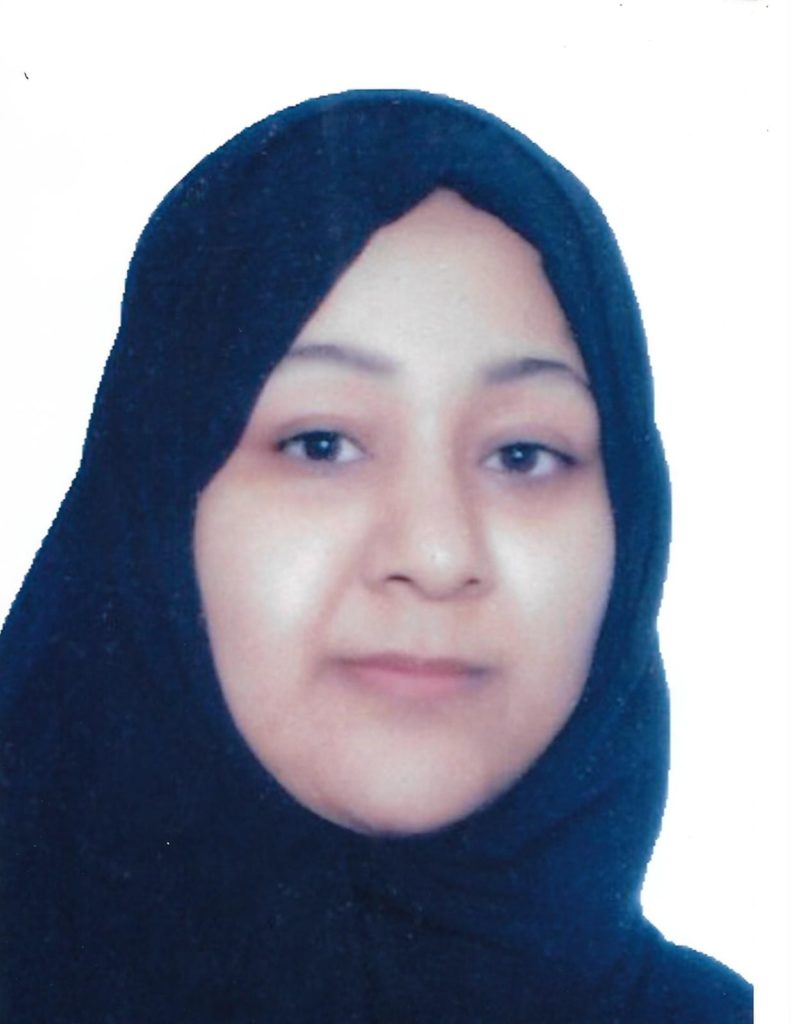24 September 2019 – The United Nations Working Group on Arbitrary Detention (WGAD) has found the detention of recently-released Bahraini activist Najah Yusuf, who was arrested in April 2017 in part for posts on social media protesting the Formula One Grand Prix, to have been arbitrary, unlawful, and in violation of her rights to free speech and a fair trial. The WGAD called on the Bahraini authorities to award Ms. Yusuf compensation for the violation of her human rights.
The Bahrain Institute for Rights and Democracy (BIRD) and Americans for Democracy & Human Rights in Bahrain (ADHRB) welcome the Opinion of the Working Group and echo its calls for just compensation to Najah.
In its Opinion, the WGAD found Najah’s detention to be arbitrary under Category I (lacking a legal basis justifying the deprivation of liberty), Category II (in violation of the right to freedom of expression), and Category III (due to the unfair nature of her trial). The WGAD particularly emphasised “that no trial of Ms. Yusuf should have taken place” and called on Bahrain to “accord her an enforceable right to compensation and other reparations.”
In April 2017, Najah was summoned to the Muharraq Security Complex by the National Security Agency (NSA) and subjected to multiple interrogations over a five-day period. During this time, officers subjected Najah to physical and sexual assault, prevented her from meeting with legal counsel, and eventually forced her to sign a confession. On 25 June 2018, Bahrain’s Fourth Criminal Court sentenced Najah to three years’ imprisonment on the basis of this confession and a series of social media posts, including one that called for Formula One to cease racing activity in Bahrain, which she and others claim is “sportswashing” human rights violations. Her allegations of abuse were never investigated.
In November 2018, Formula One expressed “concern” for being mentioned in Najah’s court ruling as one of the reasons for her conviction, but later retracted their statement, citing assurances from the Bahraini government.
On 10 August 2019, Najah was pardoned and released with 104 other individuals, as part of a royal practice to mark Eid AlAdha.
Summary of WGAD findings
In rendering its opinion, the WGAD made the following statements:*
“ The source submits, and the Government has not contested, that Ms. Yusuf endured daily interrogation and torture – including beatings, rape, sexual assault, and threats of her son being killed – by agents of the National Security Agency, without legal representation and in spite of her protests, for five days between 23 and 27 April 2017.
“ The Working Group considers that, as the National Security Agency agents searched her social network accounts without a warrant and brutalized her during the interrogation sessions, she was placed outside the protection of the law . . . The Working Group further expresses its grave concern at the lack of judicial authorization or safeguards, which enabled Ms. Yusuf’s mistreatment during interrogations.”
“. . . The Working Group notes that such evidence should not have been used against Ms. Yusuf… because it was obtained without a search warrant and resulted in some charges being brought against her.”
“. . . the Working Group considers that she has been deprived of her liberty for her exercise of the right to freedom of opinion and expression as there is no legitimate aim or objective in a free and democratic society for her deprivation of liberty.”
“Given its finding that Ms. Yusuf’s deprivation of liberty is arbitrary under category II, the Working Group wishes to emphasize that no trial of Ms. Yusuf should have taken place.”
“The Working Group cannot fail to express its gravest concern at the allegations of torture and ill-treatment described above, for the purpose of extracting her confession…”
“. . . The Working Group recalls that, under certain circumstances, widespread or systematic imprisonment or other severe deprivation of liberty in violation of the rules of international law may constitute crimes against humanity.”
“ The Working Group considers that . . . the appropriate remedy would be to. . .accord her an enforceable right to compensation and other reparations, in accordance with international law. “
* emphasis added
Quotes
Commenting on the decision, Najah Yusuf said: “I am glad to see that the UN has acknowledged my suffering and recognised the injustice of my imprisonment. However, there are still many political prisoners in Bahrain who have endured similar mistreatment, including my former cell mates Hajer and Medina. What happened to me is unfortunately just one case among many, and these other cases cannot not be forgotten. The international community must call on the Government of Bahrain to end its systematic abuse against its own citizens.”
Commenting on the decision, Sayed Ahmed Alwadaei, Director of Advocacy at BIRD said: “For too long, Formula One have relied on Bahrain’s false assurances to distance themselves from Najah’s ordeal. With today’s decision from the UN, Formula One can no longer shirk responsibility and must now ensure that Najah receives the compensation she deserves. Their race in Bahrain continues to legitimise a regime which persecutes all dissenting voices and they should provide assurances that what happened to Najah will never be repeated. If they are unable to guarantee the safety of peaceful protestors, they must consider cancelling the race; a failure to do so means further complicity in Bahrain’s repression.”
“Najah’s case is exemplary of the way that Bahrain treats anyone who dares to speak out about injustice or rights violations in Bahrain,” says Husain Abdulla, Executive Director of ADHRB. “There are thousands of other prisoners in Bahrain who are languishing in cells for no reason other than having the audacity to call for reform. This is something that the international community needs to remember – particularly as Bahrain currently enjoys a seat on the Human Rights Council.”
Notes for Editors:
Read the Full decision here: https://www.ohchr.org/Documents/Issues/Detention/Opinions/Session84/A_HRC_WGAD_2019_31.pdf




